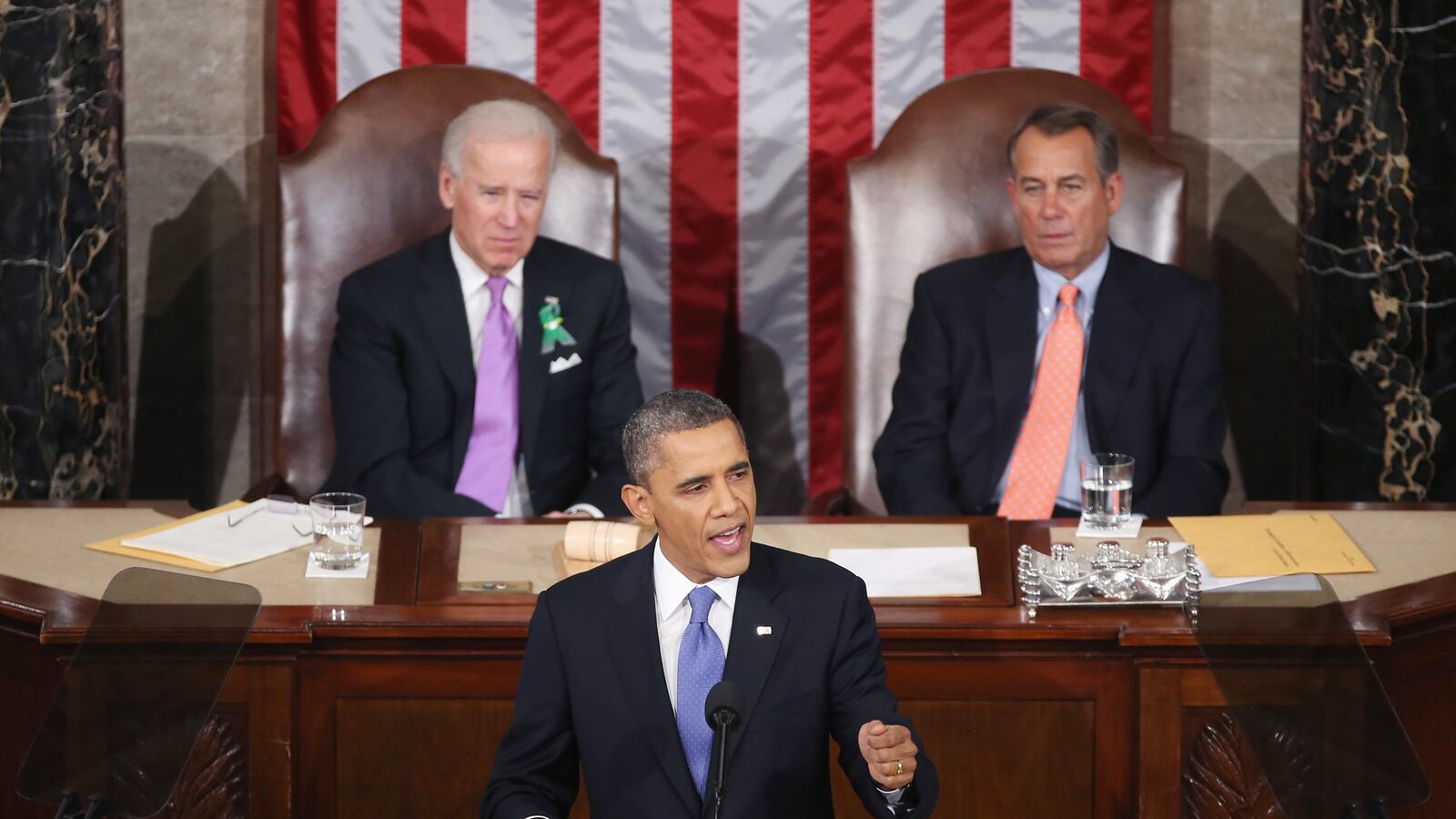To understand why Democrats are doing better than Republicans in an America that less and less resembles an episode of Father Knows Best, just compare President Obama’s State of the Union address with Florida Sen. Marco Rubio’s response. Rubio flaunted his immigrant and working-class roots, but biography aside, he told the same story about America that the GOP has been telling for decades.

In Rubio’s depiction, America is a wondrous place where capitalism allows everyone to get ahead, and the only major external obstacle to upward mobility is an overbearing federal government. “America,” he said, “is exceptional because we believe that every life, at every stage, is precious, and that everyone everywhere has a God-given right to go as far as their talents and hard work will take them.”
Obama serves up this Hallmark-card patriotism too, but he also signals, in ways that many nonwhite, non-Anglo, nonstraight Americans instinctively understand, that America often doesn’t act as if “every life” is equally “precious.” When Obama said early in his speech that “it is our unfinished task to restore the basic bargain that built this country—the idea that if you work hard and meet your responsibilities, you can get ahead, no matter where you come from, what you look like, or who you love,” he was acknowledging that state-sponsored bigotry still prevents millions of gay and lesbian Americans from “getting ahead” because of who they love.
He returned to the theme later on when he promised that “we will ensure equal treatment for all service members, and equal benefits for their families—gay and straight.” Rubio, by contrast, never acknowledged homophobia at all. To listen to his speech, you’d think that all gays and lesbians need to enjoy the American dream is a cut in their capital gains taxes.
Similarly, when Obama discussed gun violence, he spoke about Hadiya Pendleton, a 15-year old African-American girl from Chicago, and then let the cameras capture her mother and father on national TV. In so doing, Obama again signaled his recognition that, in reality, America doesn’t see “every life” as equally “precious.” When middle-class whites are murdered in a movie theater, shopping mall, or school, the media cranes its neck to see, and politicians begin speaking about restricting easy access to guns. When poor black kids die, by contrast, it’s background noise. Subtly, but unmistakably, Obama acknowledged that. And he made it clear that he believes one of his responsibilities as president is to redress this still ever-present legacy of American racism. Rubio, by contrast, like so many other Republicans, spoke as if race is a nonfactor in American life.
In one of his speech’s most remarkable moments, Obama also drew attention to a 102-year-old African-American woman named Desiline Victor who waited for hours upon hours to vote. For African-Americans in particular, the message was obvious: Victor came to an America that denied the franchise to Southern blacks, and that racist tradition continues in the efforts of states like Florida to make it difficult for poor black and brown Americans to vote today. Obama promised to change this ugly reality. Rubio pretended it doesn’t exist.
Republicans believe they are the party of aspiration, of the all-American yearning to get ahead. And they believe, rightly, that Latinos, African-Americans, women, and gays share that yearning. What they often ignore is the way America’s deep traditions of bigotry still stifle those aspirations, whether by hindering African-Americans’ access to the voting booth, exploiting and brutalizing illegal Mexican immigrants, preventing gays and lesbians from marrying, or denying female workers equal pay.
Republicans need not agree with every remedy Obama offers for these forms of injustice, but they must at least acknowledge them when telling America’s story. Otherwise, at some level, they will continue to ignore the Americans they wish to court. Which is exactly what Marco Rubio did last night.






